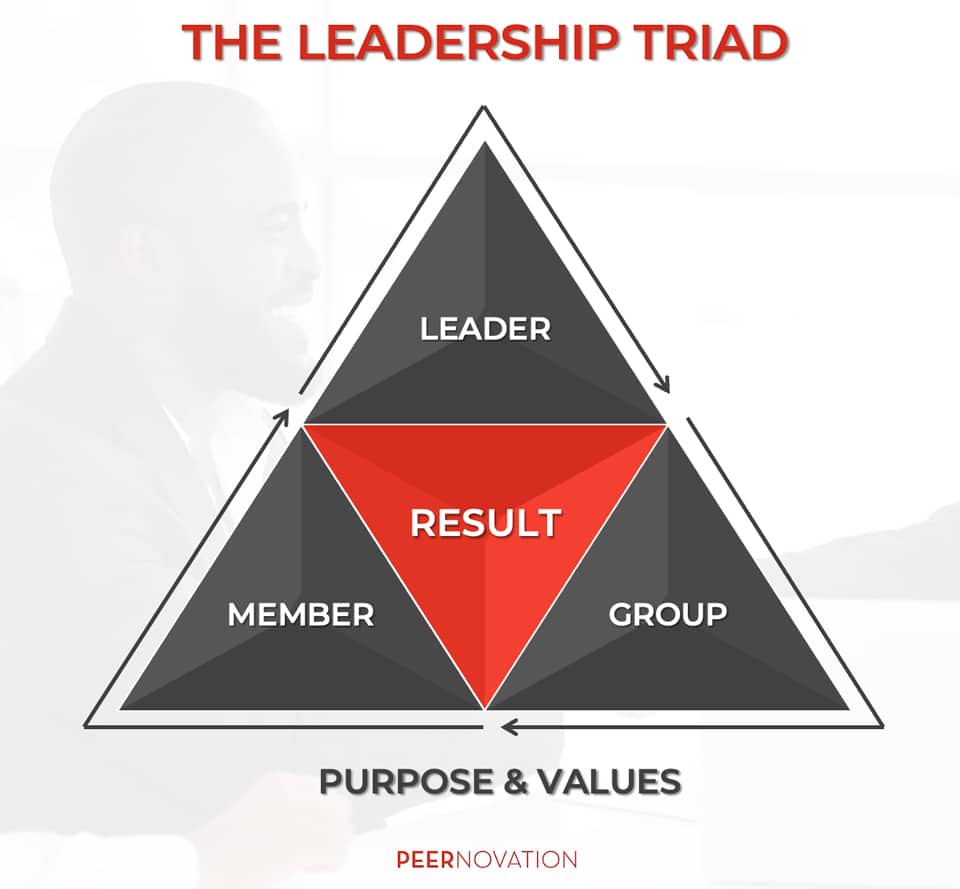Being Greater Than the Sum of Your Smarts Requires Guidance

A great deal of emphasis is placed on training Peer Advisory Group Chairs and Forum Leaders – as it should be. These amazing individuals bear a tremendous responsibility as coaches and confidants to CEOs and their key executives worldwide. They work to make their groups “greater than the sum of their smarts” (Sekou Andrews) and need to stay on top of what’s over the big hill and around the next corner.
Conversely, the members receive little, if any, training on how to maximize the value of their unique ensemble. As a result, they don’t always receive the full benefits of what they could be experiencing. The same is true for company team members, which is why most teams aren’t exactly firing on all cylinders, either. A quick Amazon search revealed more than 60,000 leadership books and only 352 followership books. There’s something out of balance here. I see it every day.
Training or Guidance?
I was looking for a replacement for the word training in the headline because of what it conjures in so many people’s minds. For fun, I asked Chat Smith (GPT -4) to weigh in, and it came up with many more negative connotations than I would have identified. Here are a few examples:
- Rigid: Implies a lack of flexibility or creativity.
- Monotonous: Suggests it can be repetitive and boring.
- Intimidating: Can make people feel overwhelmed or anxious.
- Tedious: Viewed as a long and tiring process.
- Forced: Implies it is compulsory and not by choice.
- Restrictive: Limits freedom and spontaneity.
- Mechanical: Suggests a lack of human element or personalization.
- Punitive: Associated with disciplinary actions.
- Grueling: Seen as physically or mentally exhausting.
I didn’t want to communicate any of these sentiments for fear that you would click away from this article faster than you can say “peer advisory group.” It’s more about creating greater clarity and empowering group and team members with everything they need to leverage all the intellectual and emotional capital available to them. They don’t need training, yet they do need guidance.
Model the Way
“Model the Way” is the first of the five exemplary leadership practices that Jim Kouzes and Barry Posner espoused in their seminal book, The Leadership Challenge. It speaks to clarifying your values by finding your voice, affirming shared ideas, and setting an example by aligning actions with those values. For my purposes, I will use a model to “model the way” and make the case for more guidance for individual members and the larger collective.

The Leadership Triad is among the three dynamics shared by the world’s highest-performing CEO Peer Advisory Groups. The premise of the Leadership Triad is that the leader, the individual member, and the group enjoy a shared responsibility for the intended results. Those results can involve everything from productivity and accountability to the group’s culture and how much they celebrate together, among others. In short, the individual members and the group, as a whole, should receive just as much guidance as the group’s leader. The same holds for your teams. The Leadership Triad creates a balanced foundation for long-term engagement and success.
With guidance and tools, you inspire intentionality. You empower new members who have never been part of such a forum by gifting them with a better comprehension of the group’s promise and possibilities. They gain an improved understanding of what they expect of themselves, their colleagues, and their leader in pursuit of truly maximizing the value of their experience. Experienced members, who, over time, can grow complacent, become reinvigorated and more appreciative of the unique environment that too many CEOs never get the opportunity to enjoy.
Thought Starters
While this topic deserves a much deeper dive, here is some initial guidance for members:
- Purpose Statement – Craft a personal statement about why you are investing in a forum
- Goals and Aspirations – List your specific goals and aspirations
- Visibility – Make those goals and aspirations visible to the leader and your fellow members
- Values and Behaviors – Identify what you expect of yourself and others
- Voices – Think about the additional people/perspectives you’d like to add to the group
- Psychological Safety – Be generous and courageous enough to be vulnerable
- Preparation – The more prepared you are for meetings, the more productive everyone becomes
- Accountability as Personal Responsibility – Accept personal responsibility for being at your best
- Follow through and Follow up – Follow through on your commitments and follow up with one another
- Feedback – Reflect and provide feedback on your expectations and overall group development
Summary
The guidance noted above is interconnected and reinforcing. As Simon Sinek would say, “Start with Why.” Use your why to craft specific goals and aspirations and make those goals visible to all involved. This act clarifies how others can help you and how you will serve them. Identify and agree upon the values and behaviors necessary to be a good contributing member. Assuming any new people/perspectives you add to the group can chin the bar on your values, invite them to join you.
A culture that prizes and practices psychological safety is essential for any group or team seeking greatness. The more prepared you are, the more psychologically safe you feel and the more productive you will be. A high level of psychological safety also allows groups to develop an impressive culture of personal responsibility that separates the best from the rest. Follow-up and feedback fuel a continuous learning loop.
Ensuring that a group is “greater than the sum of its smarts” requires guidance for all involved – the leader, members, and group. Remember, you’re all in this together.
Written by Leo Bottary.
Have you read?
Countries: Powerful Passports. Countries: Richest. Countries: Poorest. Countries: Happiest. Countries: Life Expectancy.
Bring the best of the CEOWORLD magazine's global journalism to audiences in the United States and around the world. - Add CEOWORLD magazine to your Google News feed.
Follow CEOWORLD magazine headlines on: Google News, LinkedIn, Twitter, and Facebook.
Copyright 2025 The CEOWORLD magazine. All rights reserved. This material (and any extract from it) must not be copied, redistributed or placed on any website, without CEOWORLD magazine' prior written consent. For media queries, please contact: info@ceoworld.biz








